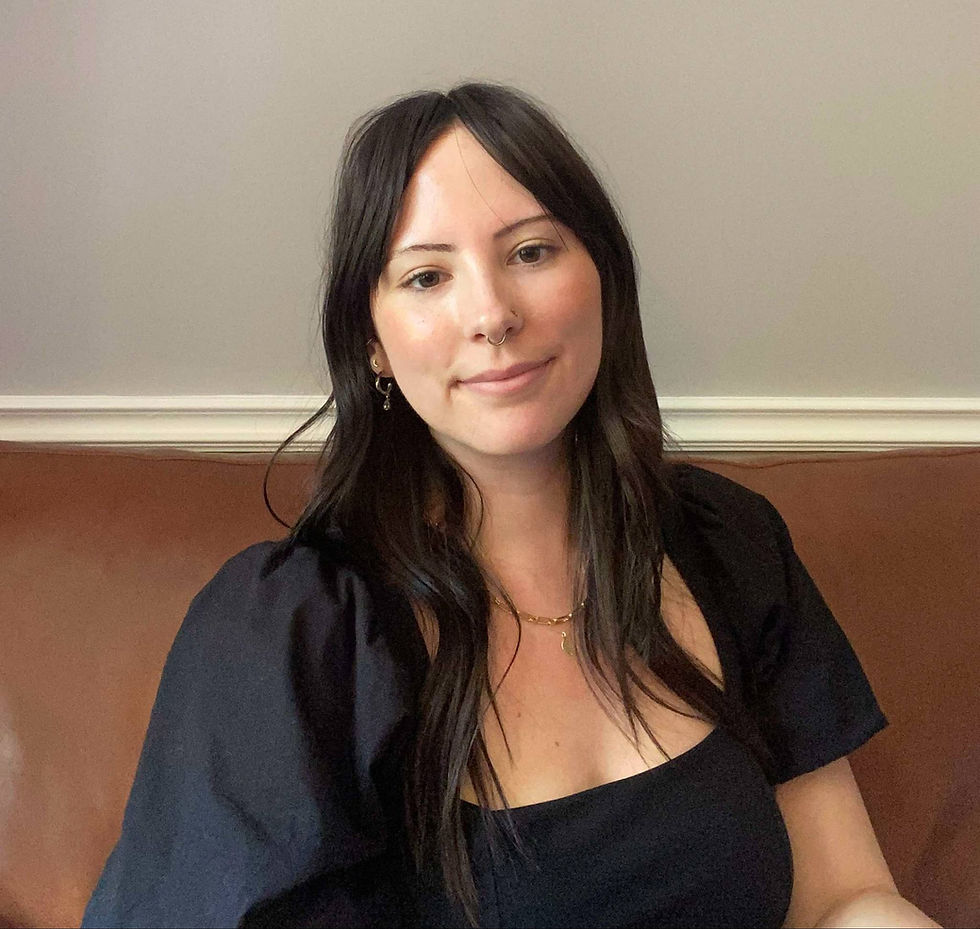Frequently Asked Questions About Low-Cost Therapy
- Ashley Amicarelli
- May 12
- 4 min read

Let’s face it: mental health support is essential, but for many people, the cost of therapy can feel like a barrier. The good news? Low-cost therapy does exist, and it can be just as effective and meaningful as higher-priced options. Whether you’re considering reaching out for the first time or you’ve been putting it off due to financial concerns.
This FAQ is designed to answer your most common questions about low-cost therapy and
help you feel more informed and empowered.
Q: What exactly is low-cost therapy?
A: Low-cost therapy refers to mental health services offered at a reduced rate
compared to standard private practice fees. These services are often made available
Through:
Sliding scale pricing (based on income)
Nonprofit and community organizations
Government-funded programs
University or college counselling centers
Therapists-in-training under supervision
The goal is to reduce financial barriers so more people can access support when they
need it.
Q: Is low-cost therapy lower in quality?
A: Not at all. The cost of therapy doesn’t determine the quality of care you receive.
Many low-cost therapists are licensed professionals, or students in training who are
supervised by experienced clinicians. Often, these services are rooted in strong clinical
ethics and values of accessibility and equity.
The relationship you build with your therapist, and their ability to support your goals, is
far more important than the price tag.
Q: Who provides low-cost therapy?
A: Low-cost therapy might be provided by:
Registered psychotherapists or social workers offering sliding scales
Graduate students in counselling or psychology programs (supervised)
Community health centres or nonprofit counselling agencies
You can often find this information on the organization or therapist’s website—or by
reaching out directly and asking.
Q: How much does low-cost therapy actually cost?
A: It depends on the provider and your financial situation. Here are a few general
ranges:
Sliding scale fees: often between $80–$110 per session
Student or intern-led therapy: sometimes free or low cost ($25-$75)
Community organizations: may offer fully subsidized government funded
Sessions
Q: What can I expect in a low-cost therapy session?
A: A low-cost session will look and feel a lot like a standard therapy session. You can
expect:
A safe, confidential space to talk about what’s going on
A therapist who listens without judgment and supports your goals
Sessions lasting around 50 minutes
Short-term or long-term options depending on the provider
Therapy may be in person, over the phone, or via secure video depending on what’s
Offered.
Q: Are there limits to how many sessions I can have?
A: It varies. Some programs offer short-term therapy (e.g., 6–12 sessions), while others
offer ongoing support depending. If the service is time-limited, your therapist can help
you make the most of the sessions and provide referrals if you need longer-term care.
Regardless, your therapist should be sharing this information prior to the start of
Services.
Q: Will my therapist be trained to deal with my specific concern?
A: Low-cost does not mean less capable. Many providers have experience with
common concerns like:
Anxiety and depression
Relationship issues
Grief and loss
Burnout or stress
Life transitions
Trauma and abuse
If you’re looking for support with a specific identity, cultural background, or experience,
don’t hesitate to ask whether the therapist or agency has specialized training or
Services.
Q: Will my insurance or benefits cover low-cost therapy?
A: Yes – if you have a health benefits package that covers mental health therapy from a
Registered Provider. Therefore, if your therapist is a registered provider (e.g.,
psychotherapist, social worker, or psychologist), your extended health benefits may still
cover all or part of the cost—even if it’s a reduced rate. Be sure to check with your
insurance provider and clarify with the therapist up front. If your therapist is a student or
intern, services can still be covered under the signing clinical supervisor.
Q: How do I find low-cost therapy options near me?
A: Here are some places to start:
Community health centres or local mental health agencies
Private practices with low cost therapy programs and student or intern
therapist(s)
Sliding scale therapist directories like Psychology Today, Affordable Therapy
Network, TherapyOwl, or Open Path Collective
You can also search online with keywords like “low-cost counselling near me” or “sliding
scale therapy + your city.”
Q: Is it worth starting therapy if I can only afford to go once a month?
A: Yes—absolutely. Therapy isn’t “all or nothing.” Even infrequent sessions can help
build insight, resilience, and emotional tools. Your therapist can work with you to
structure sessions in a way that makes the most of your time together, including
exercises, strategies, or reflective prompts between sessions.
Final Thoughts:
You don’t need to wait for a crisis or for your budget to expand in order to prioritize your
mental health. Help is available—and it can be affordable. If you’re ready to take the
next step but unsure where to begin, reach out. Allison, or another therapist would be
happy to help guide you toward the right resources.
Your well-being is worth investing in—and there are ways to do that that don’t have to
cost a fortune.
Book a free consult today: Book Online | Thrive Psychotherapy London




Comments